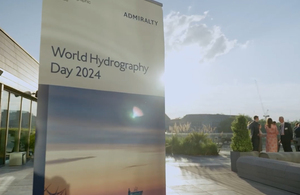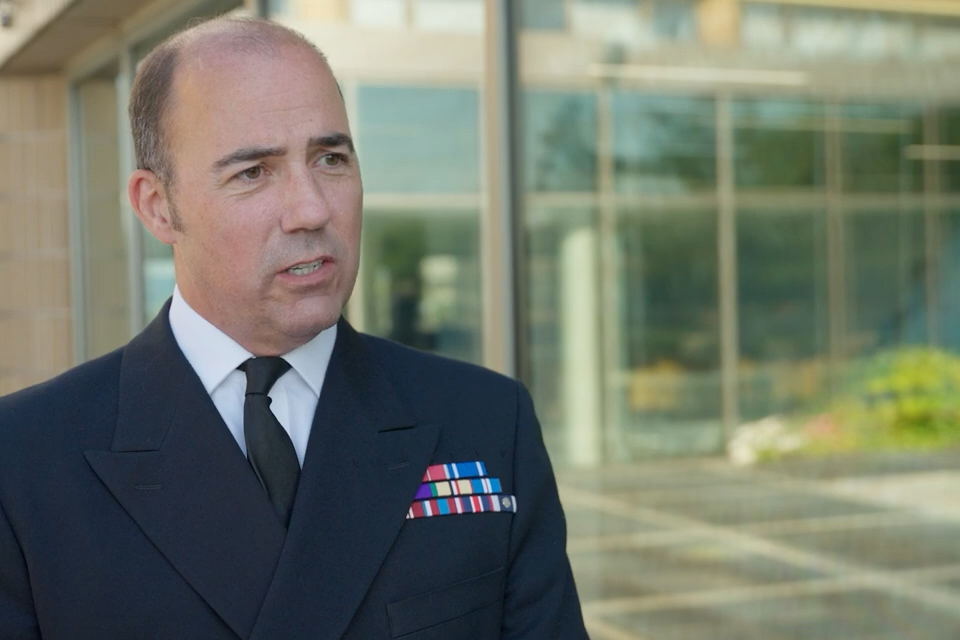Celebrating World Hydrography Day 2024
Raising awareness on the importance of hydrography in improving our knowledge and understanding of the world's seas and oceans.

World Hydrography Day is an important date in the calendar for everyone involved in the seabed mapping community and all those who value the vital work of hydrography, and this year was no exception. The UK Hydrographic Office marked the occasion with a reception held at the International Maritime Organization (IMO) headquarters in London, on the banks of the Thames.
We were delighted to be joined by many colleagues, partners and leaders of the maritime industry for an evening to reflect on and celebrate the importance of hydrography in the maritime sector. It was also a welcome opportunity to look ahead at what developments and innovations are around the corner. Hydrography underpins the maritime industry; without it, we wouldn’t be able to chart our waters and ensure safe and efficient navigation. Its importance mustn’t be understated.
How hydrography is evolving to support shipping’s digital transformation
Kicking off the evening, IMO Secretary-General Arsenio Dominguez welcomed all guests to the IMO and spoke warmly of the importance of hydrography for safe navigation on a global scale and the close links between the hydrographic community and the wider shipping community, including the longstanding relationship between the IMO Secretariat and the UKHO.

He was followed by Dr Mathias Jonas, Secretary General of the International Hydrography Organization (IHO), who shared his thoughts on how hydrography is evolving to support shipping’s digital transformation and the opportunities presented by the new IHO data standard S-100. Richard Bell of the Maritime and Coastguard Agency then discussed the work done by the UKHO and the MCA to ensure the fulfilment of our SOLAS obligations in UK waters.

Rear Admiral Angus Essenhigh OBE, National Hydrographer, also spoke on the transformative time faced by the hydrographic community and, in an era of exciting technological advancements, of all that we can achieve with a spirit of innovation and a collaborative mindset. Angus highlighted the UKHO’s work to prepare for S-100, sharing the benefits for the end-user, from aiding passage planning to supporting safer navigation and taking us one step closer to fully optimised voyages.
Safer, more efficient, and sustainable marine activities
Referencing this year’s World Hydrography Day theme of ‘for safer, more efficient, and sustainable marine activities’, Angus highlighted the importance of marine data across all aspects of the maritime sphere. These include supporting safety and security and unlocking new efficiencies in seaborne trade to deliver on our shared sustainability commitments, including the IMO’s decarbonisation goals. Angus concluded by encouraging everyone to play their part to raise awareness of the importance of hydrography and to work together to make our maritime activities ‘even safer, even more efficient, and even more sustainable.
World Hydrography Day event at the International Maritime Organization
The evening also saw John Dillon-Leetch, Port Hydrographer at the Port of London Authority (PLA), recognised for his outstanding contribution to hydrography. He was presented with the 2024 Alexander Dalrymple Award. The accolade is named in honour of the first Hydrographer of the British Admiralty and recognises outstanding contributions to the field of hydrography.
John Dillon-Leetch has made a huge contribution during his tenure at the Port of London Authority, not least through his support for the UKHO’s Memorandum of Understanding with the PLA, one of the first such agreements of its kind and which has heralded a new era of collaboration between the UKHO and the PLA.
Speaking after receiving his award, John Dillon-Leetch said:
I see the award as recognition of the Port of London Authority’s consistent support and the value it places in the positive impact that hydrography brings to improving safety, efficiency and sustainability on the Thames, as well as the wider ports and shipping industry.